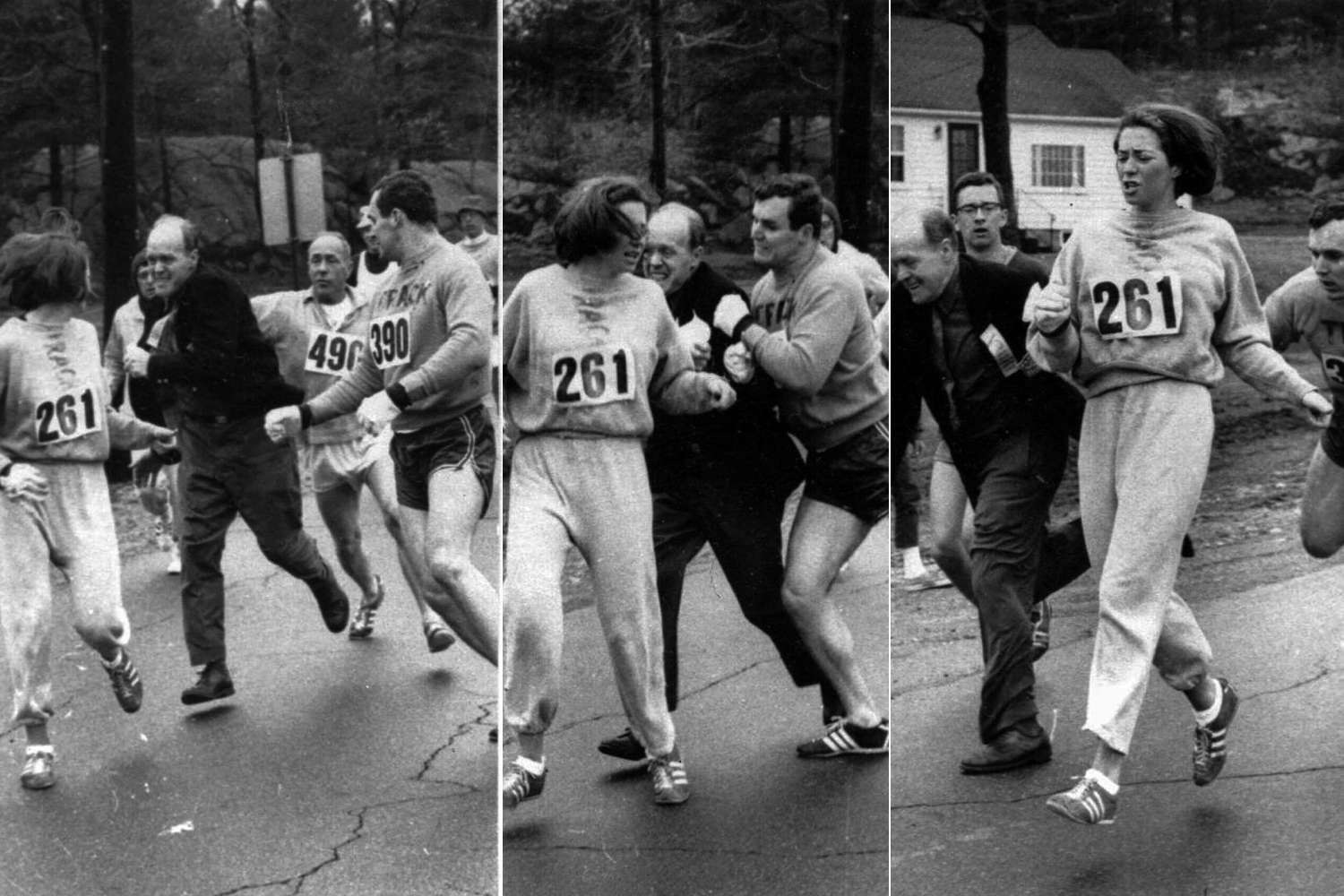Women were not allowed to participate in the Boston Marathon, but in 1967 Kathrine Switzer used a ruse to enter anyway: the race official, Jock Semple, tried in vain to stop her but she made it to the finish line.

@Wikipedia
In the 1960s, men dominated sports, and women were not allowed to participate in most competitions. One of the most visible symbols of this kind of discrimination was the Boston Marathon, which until 1967 did not officially accept female competitors. It was then that a young woman named Kathrine Switzer decided to break the rules and change the history of running.
Kathrine Switzer: breaking the rules
Student and enthusiastic runner Kathrine Switzer knew that the marathon was technically open only to men. But there was no prohibition against women competing. Knowing this technicality, she signed up under the initials “K.V. Switzer” instead of using her given name. This small sleight of hand allowed her to obtain an official bib number, 261.
Kathrine arrived at the starting line on April 19, 1967, with her boyfriend and her coach. No one appeared to notice her initially, but around a few miles in, race official Jock Semple observed her running and tried to physically stop her.
The classic shot when Semple attempted to pull off her bib was taken by photographers and symbolized the struggle for gender equality in sports. Luckily, Kathrine’s boyfriend, a football linebacker, came to her defense to have the official removed, enabling her to continue running.
In 1972, the Boston Marathon formally opened its registration to women.
Despite the tension and surprise, Switzer completed the marathon in a time of four hours and twenty minutes. Her success made headlines and triggered a debate on the role of women in competitive sports. In the following years, she became one of the main advocates for the rights of female athletes and helped fuel the campaign calling for women to join long-distance running. Due to her campaign, the Boston Marathon officially opened their registration to women in 1972.
Kathrine Switzer’s story encourages women athletes worldwide in their millions. Bib number 261, which she used as her running number for that historic marathon, has become a metaphor for strength and courage. Switzer went on to campaign for women in sports, and in 2017, 50 years on from her first marathon, she ran again in Boston, demonstrating yet again that with determination, obstacles can be overcome. Her win was not just a personal victory but also a principle gain towards the equality of men and women in sports, overcoming obstacles to set the stage for future generations of women to compete on an equal basis with men.
